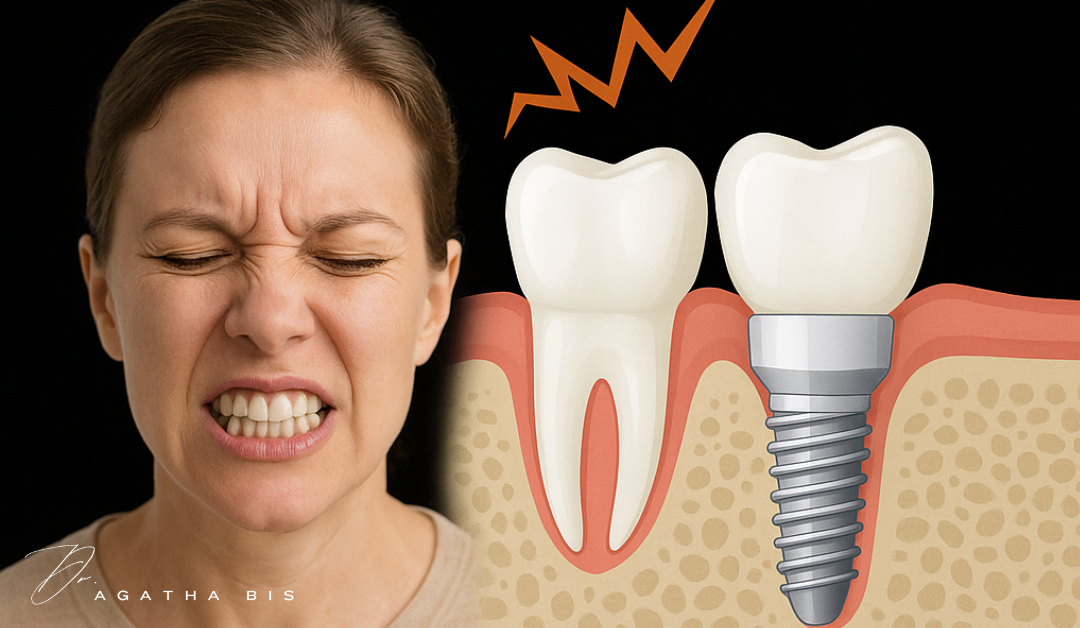Dental implants are often described as one of the most successful and reliable treatments in dentistry. They look natural, feel stable, and can last many years when cared for properly. However, there is one condition that can silently put implants at risk: bruxism, also known as teeth grinding or clenching.
Why Implants Are Different from Natural Teeth
Your natural teeth are supported by a ligament called the periodontal ligament. This ligament acts like a cushion, absorbing pressure and sending signals to your brain when you are biting too
hard. Implants, however, do not have this cushion. The Bruxism Conundrum
fused directly to the bone. This means that if you grind or clench, the pressure goes straight to the implant and surrounding bone without warning signs.
What Can Happen with Grinding
• Crowns can chip or crack.
• Screws that hold the implant together can loosen or even break.
• The bone around the implant can begin to wear away, putting the entire implant at risk.
Over time, these problems can add up, leading to implant failure if the grinding is not controlled.
How to Protect Your Implant
If you or your dentist suspect teeth grinding, you may notice worn-down teeth, jaw tension, or frequent headaches. The best protection is a custom-made appliance, often called a night guard. This device spreads out the pressure, protects the implant and your natural teeth, and helps prevent long-term complications.
Think of your implant as a major investment in your health and smile. Just like you would not buy a car without insurance, you should not get an implant without protection if you grind your teeth.
– Written by Dr. Agatha Bis




